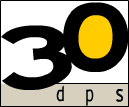A Lot of Talk About SEO

Simply stated, SEO is the process of refining your website so that it ranks as well as possible with search engines. It is considered the "free" way to get to the top of search engines. The real truth is that SEO takes a substantial commitment in time, effort, and expertise, so it can get expensive... but it can prove to be well worth the effort.
While search engine advertising can often catapult your website to the top of the search engine, those listings are paid ads. The beauty of being at the top of what's called the "organic" rankings (the unpaid, ranked search results), is that you don't pay by the click like you do with pay-per-click ads. And there are many folks who only reluctantly click on the ads, thinking that the non-ad listings are somehow "better." So, with rare exception, it is important to carefully consider your plan for SEO.
The owners/management of search engines who are compelled by their own need to generate a profit, do all they can to present the "best" organic search results possible. Now "best" is certainly subjective, and search engine logic can't really "do subjective" so what they actually do is use extremely complex logic to try to determine the "best"... which is really mostly a measure of popularity and relevance.
Search engines closely guard the details of their programming logic to keep hackers and those that would coerce their way to the top of the search engines from "cheating" their way to the top of the rankings. But there are a few things that are generally understood and/or openly communicated by search engines (although the major search engines each use their own proprietary logic, that do produce different results). The following is a partial list of those things:
- while reportedly of decreasing importance, special HTML tags called meta tags help tell search engines directly what the relevant keywords are for a web page, what the page title is, etc. HTML, by the way, is essentially the programming language of the Internet, that defines each web page for web browsers to interpret, so that they can "paint" the screen properly.
- textual page content is the single most important search engine optimization component. Since search engine logic can only understand text, it makes its determination of what each web page is about by looking at the text within the HTML. Because even graphics and hyperlinks (and other graphical or HTML buttons) are defined and pointed to via text, i.e., the names of those elements are also text that is read by the search engines. The content should be rich with keywords that represent the website's nature (products or services), and that those doing searches are likely to use to find it.
- the popularity of a website is (today anyway) determined almost entirely by links and/or referrals to the website, i.e. the number, popularity and relevancy of other websites that have links or references to your website. (note: search engines are "on to" link exchanges, so the linking websites need to be relevant somehow to the topic of the ranking website.) Social media posts and video hosting channels, e.g. YouTube, are big contributors to the determination of popularity too.
The truth about SEO is that it doesn't happen by accident; it doesn't happen overnight; and it isn't really "free." SEO takes time and some level of expertise. While pretty much anyone CAN do it, few seem to want to take the time or go out the expense to pay some one to stay on top of it. It's sad though, because search engine optimization can pay HUGE dividends!
